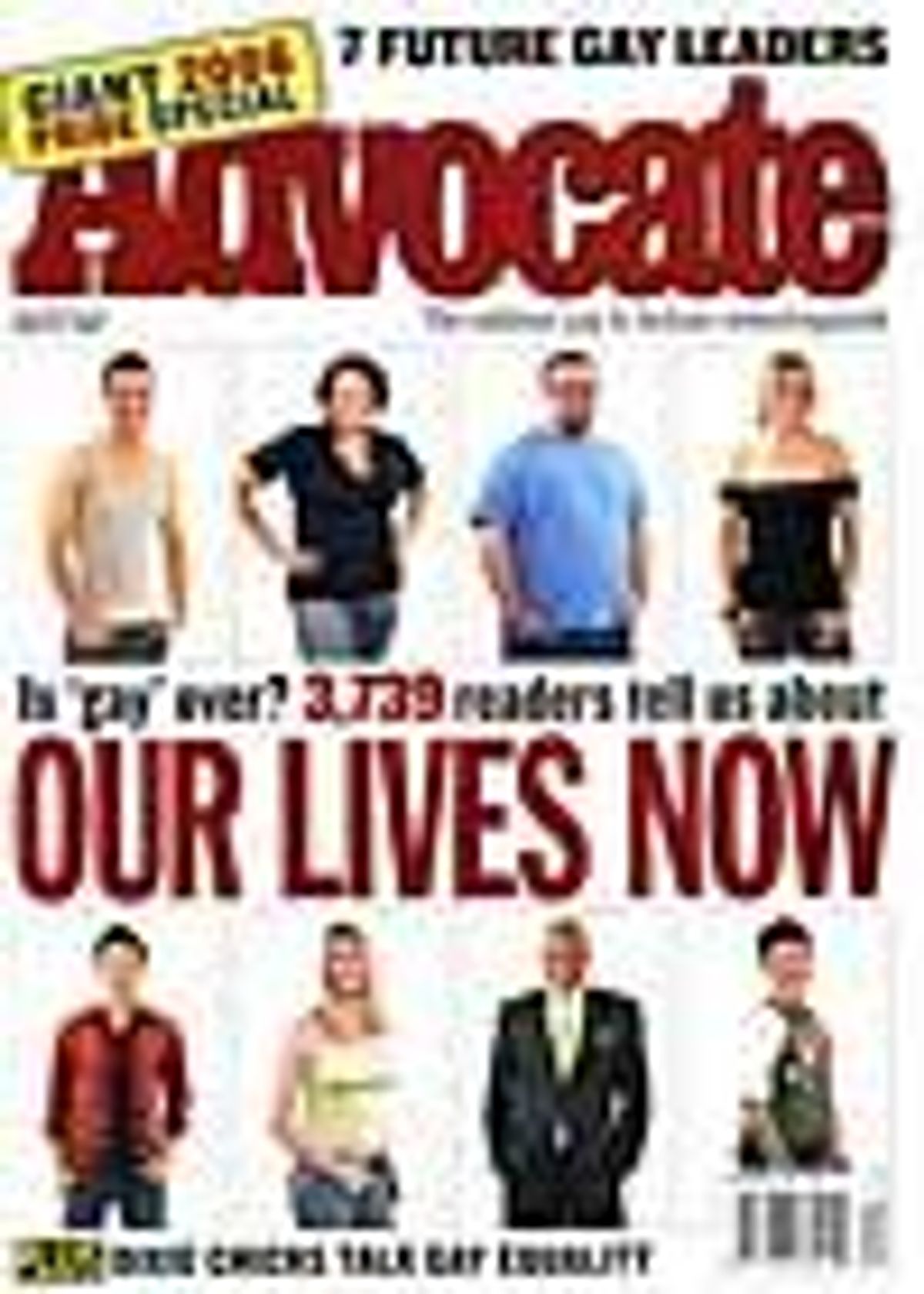"It was a
weird time," cartoonist Alison Bechdel reflects.
"In a six-month period, I realized I was a
lesbian, learned that my dad was gay, got involved in
my first relationship, and then my dad got hit by a
truck."
Bechdel's
quirky wit has long drawn fans to her ongoing comic strip
"Dykes to Watch Out For." Now, in her first
graphic memoir, Fun Home: A Family Tragicomic,
Bechdel explains where her sensibilities come from.
Her father, Bruce Bechdel, considered himself
disappointed in life. He wanted to be a big-city writer, but
instead, after military service in Europe, he returned with
his wife to his sleepy hometown in Pennsylvania, where
he divided his time between running the family funeral
home--the "fun home" of the
title--teaching high school English, and
endlessly restoring the massive Victorian house where
Alison and her brother were brought up.
He also mentored
a succession of good-looking teenage boys--and was
eventually arrested when one complained. Soon after
19-year-old Alison learned her father's secret,
he was hit by a truck on the side of a road--a
death that Bechdel and her family chose to believe was
suicide.
If that seems an
unusual reaction, it's also typical for the Bechdels.
Like a version of Six Feet Under set in the
'70s, Fun Home is full of gothic details,
muted emotions, and the unexpected.
Most gay people
struggle to come out to their families, but Bechdel's
revelation was quickly upstaged by her mother's
announcement about her father.
"It might
seem like terrible timing, but in a way it
wasn't," she says. "There was so
much mental and physical exhilaration going on in that
early stage of coming out and having sex for the first
time--it was an excellent refuge from my
pain."
Sorting through
her father's belongings shortly after his death, she
found a photo of a male youth--the family's
babysitter--wearing just a pair of briefs. This
intimate glimpse of her father's secret life
didn't disturb Bechdel: "I was still in
the throes of my own coming-out process at that point
and feeling very revolutionary and subversive, like I was
part of something that would upend the established order.
And then I found this evidence that that order had
already been upended, by my own father, in my own
family. I felt a curious kind of complicity with him.
Like we were comrades."
In fact, finding
the photo made Bechdel want to tell the story that
became Fun Home. She couldn't do so at the
time, partly because she lacked the emotional and creative
skills the project would demand, partly because she
didn't have the nerve to reveal a family
secret. Also, she adds, "it wasn't possible in
1981 to address homosexuality in the matter-of-fact
way that my story entailed."
But the biggest
inhibiting factor was Bechdel's relationship with her
father. "He really wanted me to be an artist,"
she explains. "When he was alive he was way too
involved in my life, sort of living vicariously
through me, from coloring in my coloring books when I was 6
to telling me what classes I should take in
college." This was part of the reason Bechdel
became a cartoonist: "It's such a lowbrow art
form. My father had no aesthetic criteria for it, so
he couldn't judge it."
When she finally
sat down to write the book, she was almost 40. And
"because this project would have to be more intimate
and complex, more literary, than what I'd been
doing in my comic strip, it meant confronting my
father's artist fixation head-on," Bechdel
says. Only through writing the book could she overcome
his inhibiting critical presence. "I realized
eventually that what the book was really about was not
his suicide or our shared homosexuality or the books we
read. It was about my creative apprenticeship to my
father; it was about becoming an artist."

















































































Viral post saying Republicans 'have two daddies now' has MAGA hot and bothered